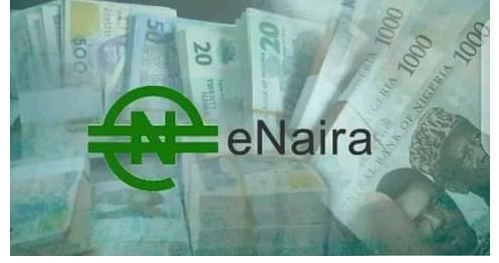President Muhammadu Buhari of Nigeria announced the eNaira, a digital currency issued by the country’s central bank and aimed at the country’s tech-savvy youth.
In ten years, the president claimed, the digital currency will add $29 billion to the country’s GDP. However, in the three days since it went live, everything that could possible go wrong for the eNaira project has gone wrong.
First, the Central Bank of Nigeria, CBN, which everyone assumed was the project’s only owner and controller, stated that it will not be held liable for any disruption, loss of revenue, or loss of services resulting from the use of the eNaira website. When a service provider tells you you’re on your own if something goes wrong, it’s not a nice first impression.
The limitation of liability on the CBN’s website read, “In no event will the CBN or its directors, officers, employees, independent contractors, affiliates or agents, or any of its or their respective service providers, be liable to you or any third party for any use, interruption, delay or inability to use the eNaira website, lost revenues or profits, delays, interruption or loss of services, business or goodwill, loss or corruption of data, loss resulting from system or system service failure, malfunction or shutdown, failure to accurately transfer, read or transmit information, failure to update or provide correct information, system incompatibility or provision of incorrect compatibility information or breaches in system security, or for any consequential, incidental, indirect, exemplary, special or punitive damages, whether arising out of or in connection with the use of the eNaira website.”
The eNaira wallet was then withdrawn from the Google Play Store on Wednesday, just 48 hours after its launch and with roughly 100k downloads (the majority of which were angry and critical reviews).
“There is an upgrade going on right now by Google; try in the next few hours,” a CBN spokeswoman told reporters.
What is eNaira?
The eNaira is a central bank-issued digital currency that is the digital version of the Naira (CBDC). If none of this makes sense to you, it’s because no one really knows what the eNaira is or what it’s supposed to do.
The Naira, after all, is already a digital money. Consider this: the money in your bank account can be used to make payments via digital transfer, eliminating the need to pay for things with real cash. The utilization of POS payments, as well as payments through our existing digital wallets, have already rendered the Naira a digital currency!
The CBN also claims that the eNaira would have its own Blockchain, which is the technology behind most crypto currencies.
How Blockchain works
When a transaction takes place on a network like Bitcoin, numerous computers compete to solve difficult mathematical equations. The winner receives a predetermined payment as well as the ability to record the transaction in the Blockchain hyperledger.
In the case of the eNaira, the CBN has stated that it will be the sole custodian of all records, implying that there will be no computers vying against one another to record transactions, as is the case with most crypto currencies.
While cryptocurrency users are usually anonymous, the CBN will know who is buying eNaira and how much they are buying because they will ask for your BVN, phone number, address, and other information when you register.
Why the eNaira is failing
The eNaira is a failing initiative for a variety of reasons. People are unsure of what it is or what it is supposed to perform, and the CBN’s explanations to the public have been limited since the project began.
While the eNaira has the appearance of a digital currency, it is not a cryptocurrency.
Cryptocurrencies were quite popular in Nigeria until the government banned them, and many would-be users who mistakenly believed of the eNaira as a digital currency would now understand that it is not, exacerbating the currency’s troubles.
Then there’s the political factor: the vast majority of Nigerians despise their leaders.
When his administration placed a ban on bitcoin transactions in the country earlier this year, a politician like Muhammadu Buhari earned his trust. In some senses, the majority of the negative ratings that led Google to delete the eNaira app from its Playstore are retaliation for the government’s earlier measures.


